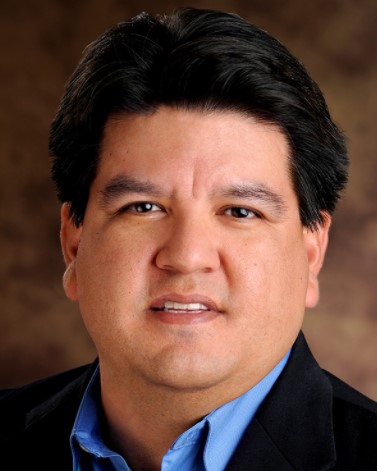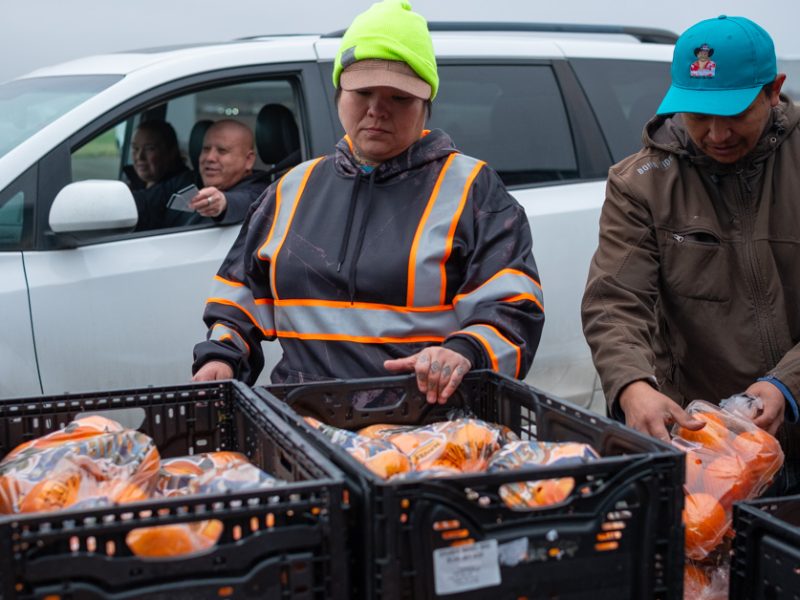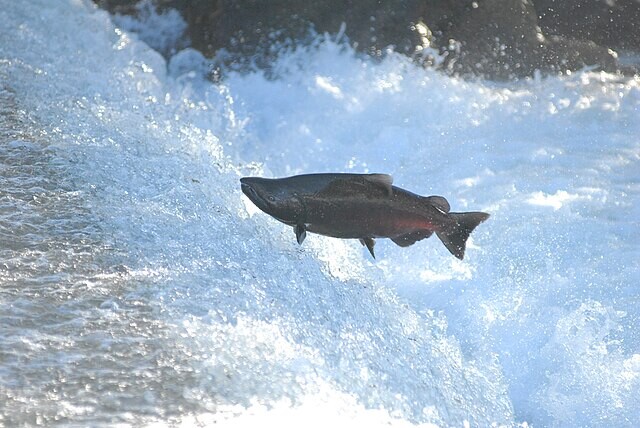By Cary Rosenbaum of the CUJ
MISSION – Appointment to the Northwest Power and Conservation Council is a goal Chuck Sams has had for 26 years.
A 24-year-old Sams was working one of his first jobs after his service in the Navy with the Earth Conservation Corp’s Salmon Corps Program. His work regularly crossed paths with the Council.
Before long, he began aspiring to join it.
“Over the years working with the Council, I knew that someday I was hoping that somehow I would get a chance to work for them,” Sams, 50, said. “I was told to forge a relationship with someone who might become governor someday, and that appointment could come through.
“So if you do the right work in your career, some day you hopefully will have a governor who recognizes that.”
Gov. Kate Brown was a young legislator in Oregon when she met Sams, who lived in Portland.
“She represented a district in Portland where I lived,” Sams said. “She was on the Legislative Commission on Indian Services, so I knew her from my work with the Salmon Corps Program. She was very helpful.”
Brown, however, never knew Sams had aspirations to join the Council.
Nonetheless, a call from an unknown number came to Sams’ phone that he chose to ignore while he played soccer with his daughter. Though he’s recounted the story to media outlets and others since mid-March, he’s still tickled by the memory.
It was Gov. Brown, and she left a voicemail.
“She said, ‘Hi Chuck. This is Kate. Kate Brown,” he recalled. “If you don’t mind and you’re not busy, I’d appreciate a call back.”
Sams’ young daughter, who was aware of who Gov. Brown is, said, “You might want to give her a call back, dad!”
During the call back, Gov. Brown offered a nomination to the Council.
“She cut right to the chase and said she wanted to know if I would like to be her nominee for the appointment of the Northwest Power and Conservation Council,” Sams recalled. “I was very excited. I said ‘Yes, I would be honored to be your nominee.’”
Sams was confirmed for the position in early March, and is set to start April 1, replacing Ted Ferrioli, a 20-year Oregon senator who had what Sams called an extremely good relationship with the CTUIR prior to retiring from the Senate.
“I think I have big shoes to fill,” Sams said. “He’s a man who was passionate about treaty rights and finding that balance. But I’m proud to know I’ll be following him.”
The Northwest Power and Conservation Council was created by way of the 1980 Northwest Power Act, which authorized Oregon, Idaho, Montana and Washington to develop a regional power plan and fish and wildlife program to balance the Northwest’s environment and energy needs. Council members include Chair Richard Devlin, Oregon; Vice-Chair Bo Downen, Montana; Jeffery Allen, Idaho; Douglas Grob, Montana; Guy Norman, Washington; Patrick Oshie, Washington; and Jim Yost, Idaho.
Three of Sams’ former colleagues wished him well on his next journey.
Debra Croswell, the former CTUIR Deputy Executive Director who hired Sams as Communications Director in 2013, said she’s happy for him.
“We’re sorry to see him leave CTUIR,” she said. “His extensive knowledge of our tribal history, treaty rights and community will bring forth a tribal voice the Council’s not had previously. He also carries experience from a wide variety of leadership roles, not only at CTUIR but with non-profit organizations and from his service in the military. It’s great to see Gov. Brown recognize that in Chuck and tap him for this important role.”
Bobbie Conner, the executive director of Tamastslikt Cultural Institute, said she will sincerely miss him.
“I have always appreciated his candor, willingness to listen to alternative points of view, and high regard for the best decision possible,” Conner said. “His preference for open deliberation and direct communication, respect for confidentiality and chain of command, and action-oriented meetings has served us well.”
Board of Trustees Chair Kat Brigham appreciated his work for his people.
“I can’t thank Chuck enough for his service to the Tribe. We are sad to see him go, but happy that he has received such a prestigious appointment from Gov. Brown,” said Brigham. “We know that he will work for the benefit of the entire region. We wish him nothing but the best.”
A LARGER ROLE LOOMS
Though he’s achieved a dream more than two decades in the making, Sams hasn’t ruled out trading a regional role for a national one under President Biden.
He’s in the running to be the National Park Service Director, and has the support of several Oregon political figures from both parties, including Brown.
“It’s a little surreal,” Sams said, “because you never know what’s going to happen. Before the governor had asked, I had been in discussions and conversations with the interior transition team as the Biden-Harris team was coming into their role.
“I still have an application that is on file with The White House. Gov. Brown has sent a letter of support for me to be appointed as the next National Parks Director. The Oregon delegation of senators have been very supportive of that if that is the wishes of the president and the incoming secretary.”
Margaret Everson was named acting director in August 2020, and is the fourth acting NPS director under then-President Trump.
The NPS is part of the Department of the Interior, and oversees more than 85 million acres in the United States, more than 20,000 employees and 279,000 volunteers. Its budget was close to $3 billion as of 2017.
If history serves as proof, Sams’ ability to adapt quickly will allow him to thrive in the role.
ADAPTING QUICKLY
In March of 2020, Sams became the CTUIR’s Incident Commander for the COVID-19 pandemic, after being delegated the responsibility by former Executive Director Ted Wright.
“What Ted didn’t know at the time: Not only had I already done all the National Incident Management Systems training, and I’d been trained to be an incident commander, but mostly under fire,” Sams said. “And I’d also had an opportunity to work and go to school at the Nuclear and Biological Chemical Warfare School in the Navy and work on the Infectious Disease Board at the Lincoln Medical Center in New York City.
“Those are things I thought I would never put into practical use. When the (COVID-19 pandemic) came, all of those things I had learned so many years before started to make sense.”
The Incident Command Team (ICT) has been putting its philosophy in the hands of professionals, Sams said, since the CTUIR adopted its Emergency Operations Plan (EOP) in 2016.
“Our EOP covered all kinds of aspects of an emergency,” Sams said. The intent was to “figure out how can we manage that system and ensure we were compliant with the Federal National Incident Management System. That way, not only because we wanted to have all that structure in place, but it’s important for when you’re doing the documentation for federal funding, state funding and other streams of funding and how does that get applied on the ground.”
The Umatilla Indian Reservation was the first federally-recognized reservation to have a COVID-19 case, a year ago. At that point Wright initiated the Emergency Operations Plan, which gave extraordinary powers to the executive director position, or their appointee.
By doing that, Sams said, “they are taking the decision-making process from political folks, and giving them to professional folks.”
Sams credits the leadership of Yellowhawk Tribal Health Center CEO Lisa Guzman for having strong relationships within the Indian Health Service, which has supplied more than 4,000 doses.
“More importantly, Lisa had a good staff, a strong staff that could quickly change from preventative medicine to emergency medicine,” Sams added, “which is not an easy task for a clinic that is predominantly designed as a preventative medicine organization.”
In his role as ICT commander, Sams was able to reach into the CTUIR organization any way he wanted to, he said, and pull the resources to the table that were necessary to the response to the situation.
“I was able to pull on resources from Legal Counsel, Planning, Public Works, Public Safety, Finance, Legislative Affairs for policy work, and bring all those people to the table,” for the Incident Command Team, he said. “And more importantly, this extraordinary power also consolidated our enterprises and entities under one command structure.”
Prior to the pandemic, CTUIR enterprises reported to boards, including the Board of Trustees.
“Now all of those entities reported directly to the incident commander, and the incident commander then can make decisions,” Sams said. “What the Board I don’t think fully understood is not only are we looking at this from the health and safety, which was our primary concern, we also had to figure out how continuity of government was going to work; continuity of enterprises and continuity of our economy.
“And those aren’t easy tasks.”
The ICT conducted analysis and made sure public safety was the first priority, Sams said.
“It was paramount,” he said. “Which is exactly what we did by setting restrictions we knew would not be popular, especially stay-at-home orders.”
One key was establishing business and government continuity, Sams said.
“If someone became sick or ill, there was somebody behind us to step into that role,” he said. “In the early days of the pandemic, we didn’t know if some one of us caught it, how long would we be out.”
Last March, the Board of Trustees and Tribal administrators were at a retreat at the Marcus Whitman Hotel in Walla Walla when they decided to take the COVID threat more seriously. The Tribe decided to declare a State of Emergency.
“Little did we all know, that would be the last time we’d all be together in one room,” Sams said. “A year later, we’re still not back together in one room. We’re a lot closer because we’re being immunized, but that was the last time.”
Reflecting on the past year, Sams said he’s very proud of the fact the CTUIR staff were adaptive and able to keep the government and its entities up and running.
“Being able to work from home and figure out how to do that. … Our Information Technology crew did a great job of working with staff so they could take their laptops; in a few instances, taking their desktop home,” Sams said. “Figuring out how to connect them into our home internet so they could actually meet into our server so we could have that continuity of government and continuity of services.”
Though he was the face of leadership in the pandemic, the affects and aftermath of the virus hit him particularly hard.
First, his daughter caught the virus early on while in college in California.
“When my daughter got sick early on, as a parent, I was very scared,” he said. “Very few things scare me. As a parent, you know when your child is down you want to be able to help. She was with family and I think that’s what helped her get through.”
Sams also lost a friend to COVID-19 whom he considered to be a little brother.
“That will always hurt,” he said. “That memory will probably never go away and I don’t think it should.”
Sams credits the Tribal community for ensuring the pandemic didn’t spread further.
“This crisis has shown our peoples’ character, more than anything we’ve seen in our modern history or even from our memory,” he said. “I’m just thankful they heeded the warnings that were provided by incident command, for tribal leadership.
The people are the ones who should be applauded for the success of being able to keep this at bay.”
The CTUIR’s total of one death due to COVID-19 was among the lowest among Pacific Northwest Tribes.
“We’ve lost a lot more relatives among our cousins from Yakama, Warm Springs, Nez Perce,” he said. “I think because our people took the advice and the guidance, they were able to shelter themselves from that thus far. We’re very fortunate that most of them — a good portion — has stood up and said they will take the vaccine, recognizing they need to be inoculated even with a relatively new vaccine that we didn’t know everything about they were trying to ensure our way of life continues.
“I’m very thankful to the community for sticking through. I know that once we can all gather again, it will be a good time to reflect on those we lost, those who were sick, and move forward.”




